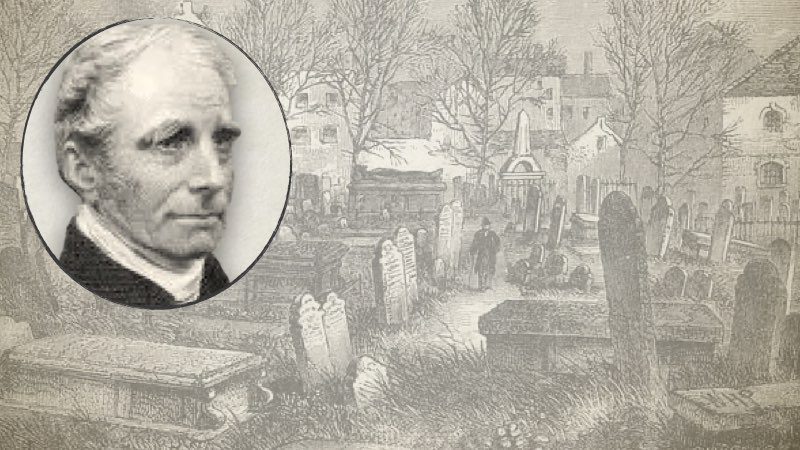Charles Buck
Charles Buck (1771-1815) was an English Independent minister, best known for the publication of his “Theological Dictionary”. According to the “Dictionary of National Biography”, a Particular Baptist minister named John C. Ryland (1723-1792) assisted Buck by writing many of the articles for the aforementioned publication. One may conclude, based not only Buck’s admiration for his friend Ryland, but also on the entries in his Theological Dictionary, that he stood head and shoulders with the High-Calvinists of his day.
Charles Buck on the Biblical Covenants (Complete)
Charles Buck's Theological Dictionary
-
The Life And Death Of Charles Buck
Charles Buck, Independent. Sacred to the memory of the Rev. Charles Buck, who departed this life August 11th, 1815, in the 44th year of his age. If an enlarged knowledge of the doctrines of grace, accompanied with unaffected humility of mind; if a tender conscience for sinners at large, and an unremitting attention to his own flock; if a steady attachment to his own principles of religion, and a liberality of sentiment towards other Christians; if an assiduous application of peculiar talents, and the publication of many useful volumes, be characteristic of an eminent Christian, and a faithful minister of Christ—he was one. Head Stone E. and W. 36,—N. and S. 28,29.
-
225 Person
PERSON An individual substance of a rational intelligent nature. Some have been offended at the term persons as applied to the Trinity, as unwarrantable. The term person, when applied to Deity, is certainly used in a sense somewhat different from that in which we apply to one another; but when it is considered that the Greek words to which it answers, are, in the New Testament, applied to the Father and Son, Heb. 1:3. 2 Cor. 4:6. and that no single term, at least, can be found more suitable, it can hardly be condemned as unscriptural and improper. There have been warm debates between the Greek and Latin churches about the words hypostasis and persona; the Latin concluding that the word hypostasis signified substance or…
-
224 Heart
Is used for the soul, and all the powers thereof; as the understanding , conscience, will, affections, and memory. The heart of man is naturally, constantly, universally, inexpressibly, openly, and evidently depraved, and inclined to evil, Jer. 17:9. It requires a divine power to renovate it, and render it susceptible of right impressions, Jer. 24:7. When thus renovated, the effects will be seen in the temper, conversation, and conduct at large. Hardness of heart is that state in which a sinner is inclined to, and actually goes on in rebellion against God. This state evidences itself by light views of the evil of sin; partial acknowledgment and confession of it; frequent commission of it; pride and conceit: ingratitude; unconcern about the word and ordinances of…
-
223 Spirit
SPIRIT An incorporeal being or intelligence; in which sense God is said to be a Spirit, as are angels and the human soul.
-
222 Soul
SOUL That vital, immaterial, active substance, or principle, in man, whereby he perceives, remembers, reasons, and wills. It is rather to be described as to its operations, than to be defined as to its essence. Various, indeed, have been the opinions of philosophers concerning its substance. The Epicureans thought it a subtile air, composed of atoms, or primitive corpuscles. The Stoics maintained it was a flame, or portion of heavenly light. The Cartesians make thinking the essence of the soul. Some hold that man is endowed with three kinds of soul, viz. the rational, which is purely spiritual, and infused by the immediate inspiration of God: the irrational or sensitive, which being common to man and brutes, is supposed to be formed of the elements:…
-
221 Humanity
HUMANITY The exercise of the social and benevolent virtues; a fellow-feeling for the distresses of another. It is properly called humanity, because there is little or nothing of it in brutes. The social affections are conceived by all to be more refined than the selfish. Sympathy and humanity are universally esteemed the finest temper of mind; and for that reason the prevalence of the social affections in the progress of society is held to be a refinement of our nature. Kaims's El. of Crit. p. 104. vol. i.; Robinson's Sermons on Christianity a System of Humanity; Pratt's Poem on Humanity.



